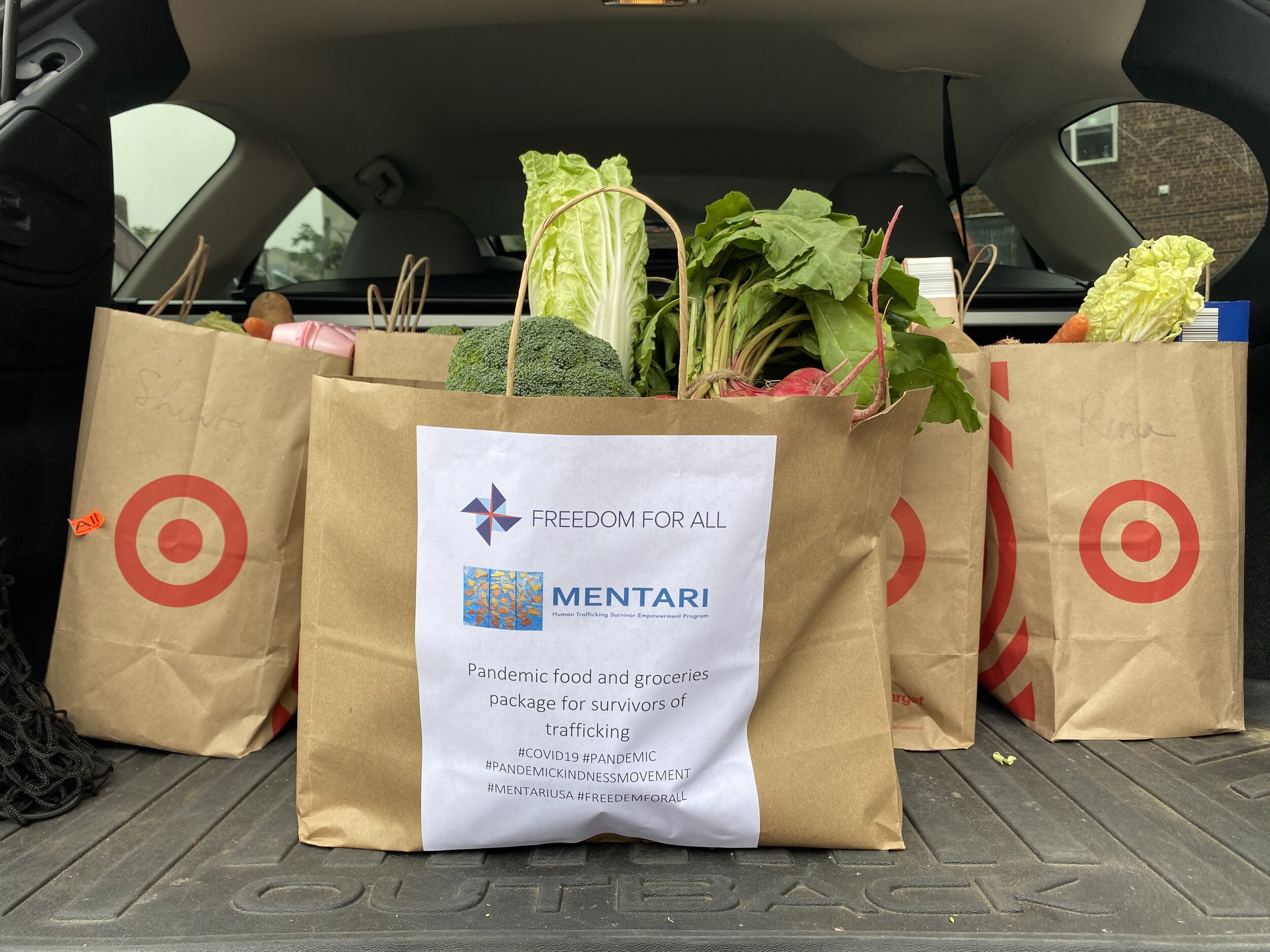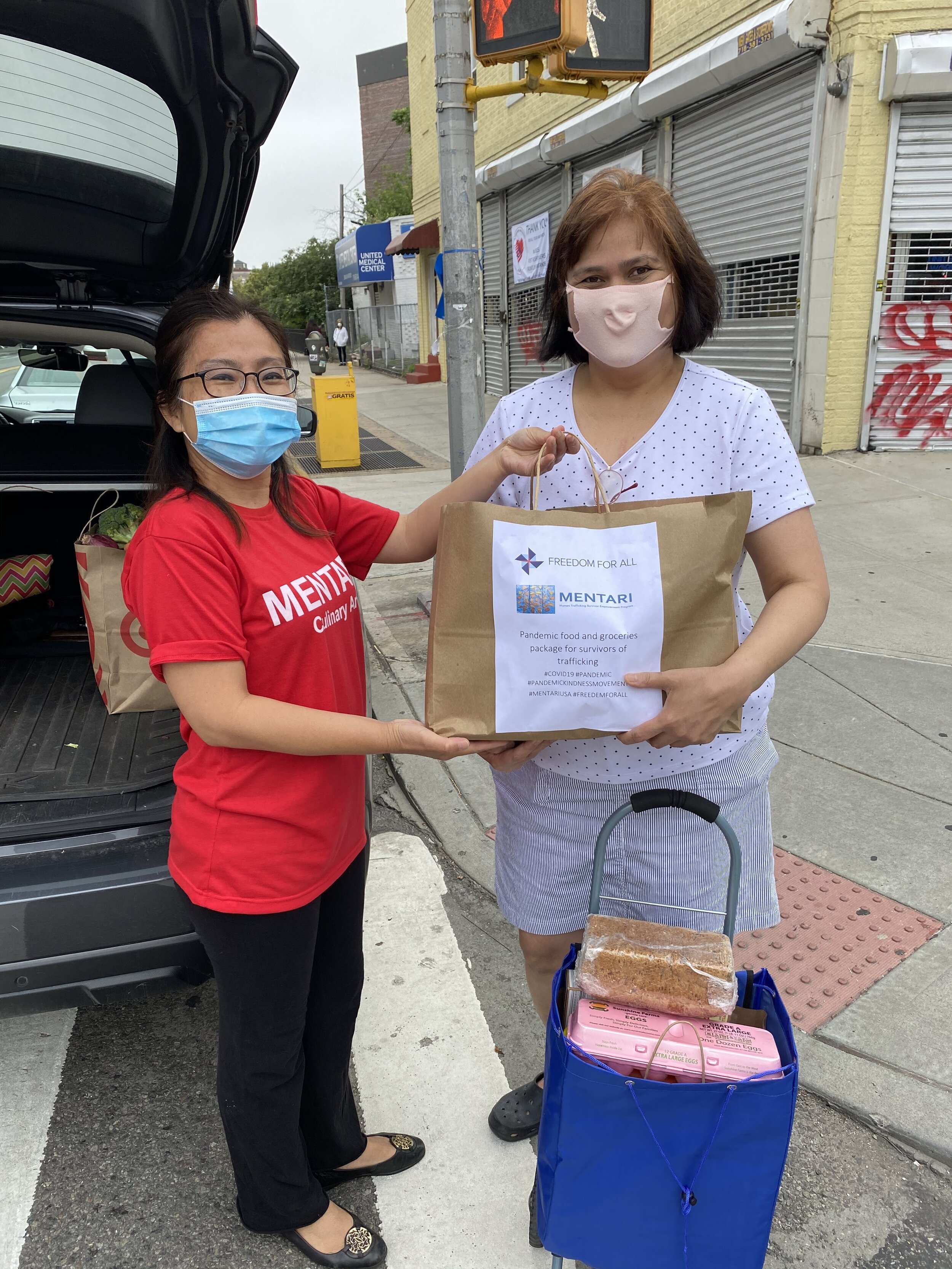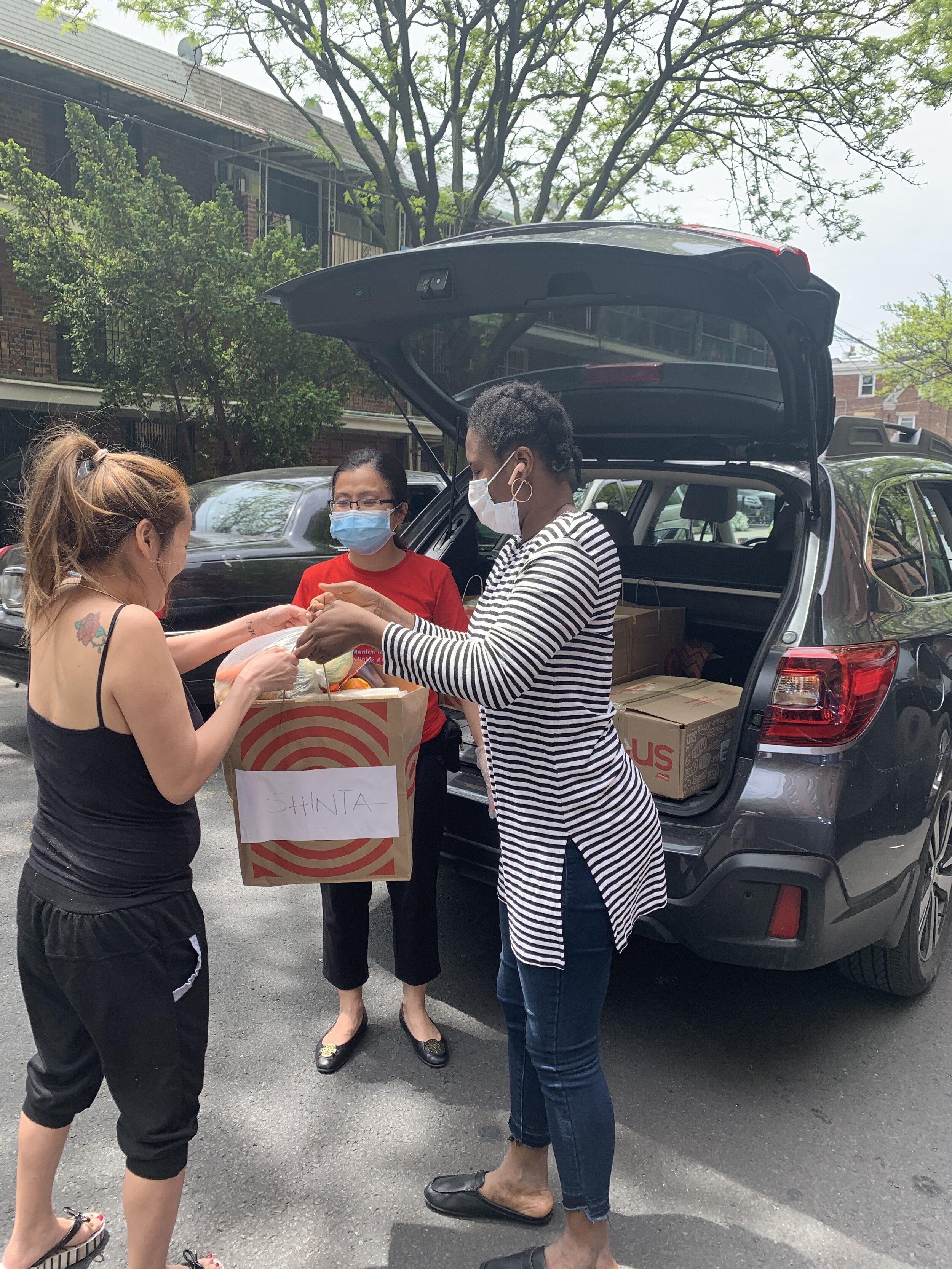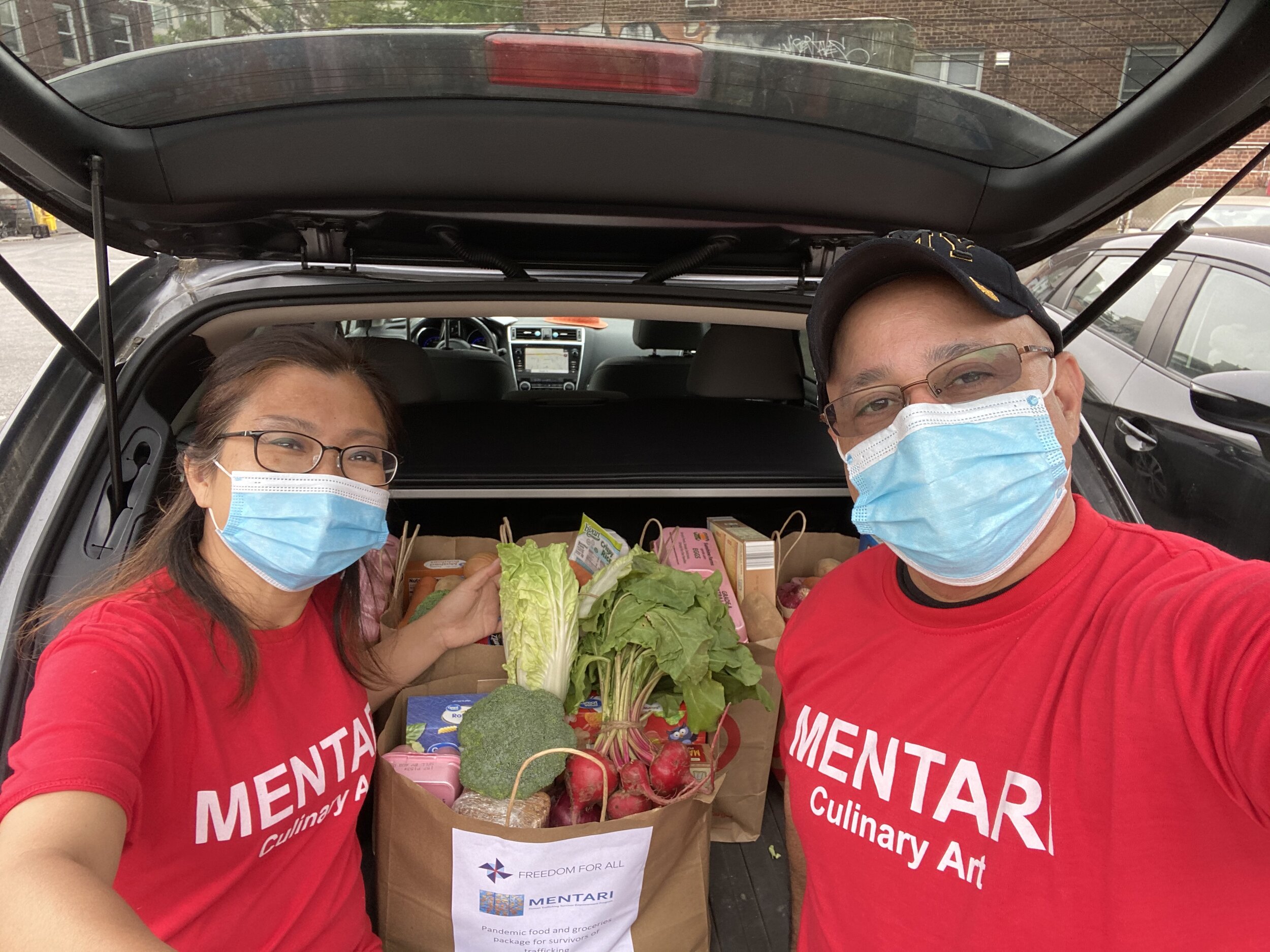In New York City, Freedom For All's partner Mentari addresses food insecurity during the pandemic
As COVID-19 turned into a global pandemic, we at Freedom For All have focused our efforts on helping our partners adapt their missions. Three of our partners, Jeevika Free in India, Survivors’ Network in Cameroon, and Mentari in NYC, have had to reinvent the way they operate to help some of the most vulnerable people.
In a three-part blog series, we are exploring how these partners are responding to the pandemic, and why we believe that their new roles are essential in the fight against human trafficking and exploitation in times of crisis. In this third and last installment, we’re looking at things here in New York City, where Mentari has been relentlessly supporting the graduates of its culinary arts program and other survivors of human trafficking.
***
“It’s not easy, because I’m not going to work anymore,” says Fatoumata. “Honestly, I wasn’t ready for it at all.”
Fatoumata is among the many graduates of Mentari’s culinary arts program. In March, she lost her job when the pandemic reached the US and the café where she was waitressing closed its doors. Since 2015, close to 200 survivors of human trafficking like Fatoumata have benefited from Mentari’s program, which teaches participants how to cook and operate in a commercial kitchen. 96% of them have subsequently found jobs in the service industry, mainly as waiters and waitresses, cooks, and baristas. In 2019, 100% of the participants found jobs right after the program.
“Unfortunately, many of them were laid off when the pandemic reached New York,” says Mentari’s founder Shandra Woworuntu. “On top of that, a lot of them have struggled to receive unemployment benefits. It’s been very challenging.”
In most cases, being able to put food on the table was the survivors’ main worry.
“A lot of them were calling us and asking how they could provide food for their families without any incoming pay. They were desperate. They didn’t know when, and if, they’d be able to go back to work.”
Mentari realized that the best way to assist them through this crisis was to help them deal with their most pressing needs.
“Since March 16th, we’ve been distributing food to 52 survivors every other week,” says Shandra. “Survivors who have children have also received books and snacks specifically for them. And for 11 of these survivors, our support has also been financial: we’ve helped them pay their rent and phone bills.”
Indeed, the phone is often the only way for them to communicate with the outside world.
“They have no TV or computer, and without their phone they can become very isolated,” explains Shandra.
Without a job and with the obligation to stay home, many of the graduates and survivors Mentari is in touch with have experienced a range of mental and physical health issues.
“A lot of the survivors we work with have mental health problems that are exacerbated by the current crisis. We’re witnessing a lot of anxiety, stress, depression, and the resurgence of eating disorders. Some of them are not taking care of their hygiene. For a few of them, we are their only trustworthy point of contact, so we have to speak with them often, get updates, reassure them. They need to have someone who they can trust, and talk to,” says Shandra.
Most of the culinary arts program graduates also belong to various support groups that are essential to their post-trauma recovery and well-being. The closure of many therapy and social centers in the city has affected their ability to get help.
“It’s been very hard for them to get access to therapy during the pandemic,” Shandra says. “Some have been doing virtual consultations, but it’s not necessarily going well. And others have simply not been able to access new services, such as therapy support, during the pandemic. So we do our best, but we are not professional... We listen and try to identify their needs and the resources that they can access. In normal times, we have partnerships with a couple of clinics that are able to give them that support. We really hope that they’ll open again soon.”
As New York City entered the first phase of its reopening plan last week, Shandra hopes that the survivors she supports through Mentari will find a way back to their normal lives. While a few of them, like Fatoumata, already know that they will be able to get their former job back this summer, things remain uncertain for many others.
“In most cases, they really don’t know when they will be back to work,” says Shandra. “Some of them have jobs as domestic workers, caretakers, or babysitters. They will surely be hired again in the future when things start to get better. But the question is, when?”
Mentari isn’t giving up, however. In the next few weeks, in addition to continuing their food distributions, they’ll be launching a new set of culinary classes online, helping survivors gain basic cooking skills, from home.
“It is our brand,” says Shandra. “Chef John Moogan, who was teaching the culinary arts program, is going to teach survivors basing cooking techniques that they can all try and get good at from their home. That will include classes on basic cutting techniques, how to sauté, and basic baking methods. This doesn’t come with a certification, it is just for survivors who previously attended the program or who will attend it in the fall to train. We want to motivate them, to take out their worries for a bit so that they can focus on doing something positive and productive.”
Shandra also knows that Mentari, like many organizations, will have to adapt to the way things are when New York City reopens for good.
“We will really focus on assisting people with job placement, helping them find opportunities, even if it’s not linked to our cooking program,” she says. “Some certifications, like the Home Health Aide training, are paths our clients are looking at. We have survivors who already passed it, and 100% of them found jobs afterwards. It’s promising.”
Text by Chloé Perceval. Pictures courtesy of Mentari.




